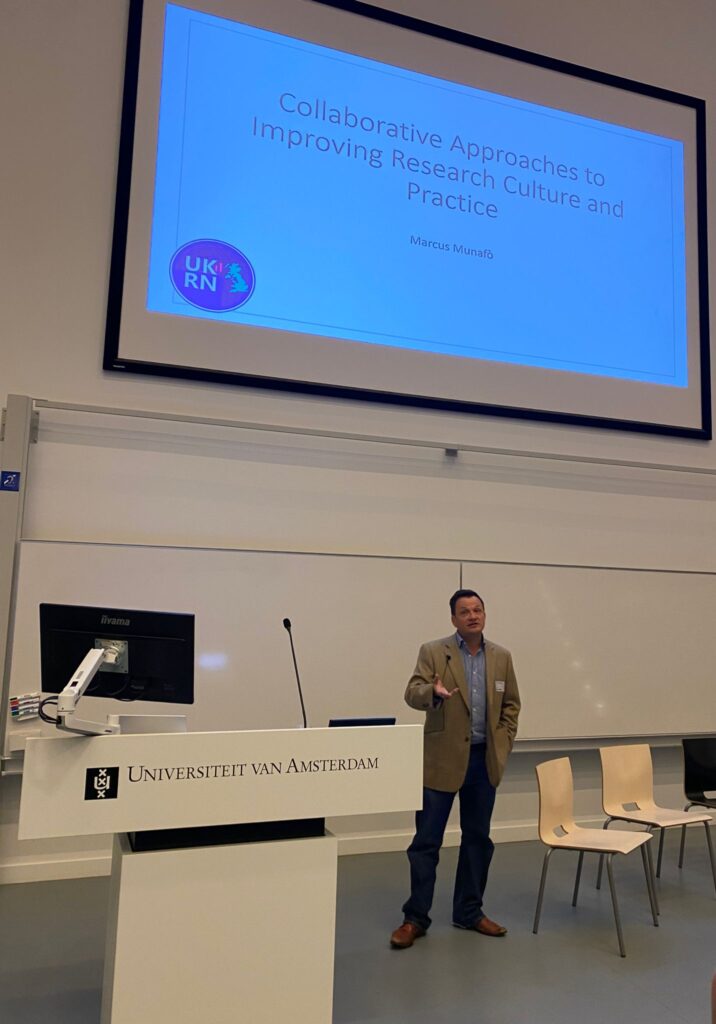On 27th October 2023, we welcomed more than 100 researchers, policy makers and research facilitators to our Launch event. The aim of the day was to exchange perspectives on reproducibility and to work towards prioritizing actions for NLRN for the coming year(s).
During the morning, we heard how the UK Reproducibility network propelled changes in the UK research landscape and we discussed how we can learn from each other across disciplines to improve research transparency in our own field. In the afternoon, participants followed workshops on the topics of education, infrastructure, community building and research practices. The results of those workshops were discussed in the closing panel discussion of the day, where participants and panel members suggested topics and actions for the NLRN to focus on.

The symposium brought a diverse set of researchers and stakeholders together, diverse in terms of roles in the research process but also in terms of disciplines It was important to take count of the current reproducibility landscape in the Netherlands. We noted that most people were very familiar with the current state of their own field, but that the overview of the entire landscape was lacking. The NLRN can act as a connector to enable communities to learn from the challenges and advances in seemingly distant fields.
The interactions during the plenary sessions and workshops showed how research domains differ in their challenges and current status of reproducibility. The workshop hosts were asked to work towards three focus areas or agenda points for the NLRN to work on. Concrete ideas included creating training materials for researchers on how to use existing digital infrastructure or on how to make executable figures. The community building workshop suggested that the NLRN should coordinate national codecheck events. During the infrastructure workshop, participants saw a need for determining at what level research infrastructures should be organized (local,national, international), and for discussing how research outputs and processes differ between research areas, which in turn influences the required reproducibility infrastructure. Participants from the education workshop suggested lobbying for teaching reproducible research practices from the bachelor level onwards and showcasing existing efforts in teaching team science.
The steering group is now tasked to see which suggestions fit best with the overall goals of the network and how to prioritize them. We will select a few agenda points first while also extending and growing the network.
Stay tuned! We will share our progress on this blog, in our newsletter and on our social media (LinkedIn and X).
You can find the presentation slides on zenodo and watch back the keynote lecture on our website.
